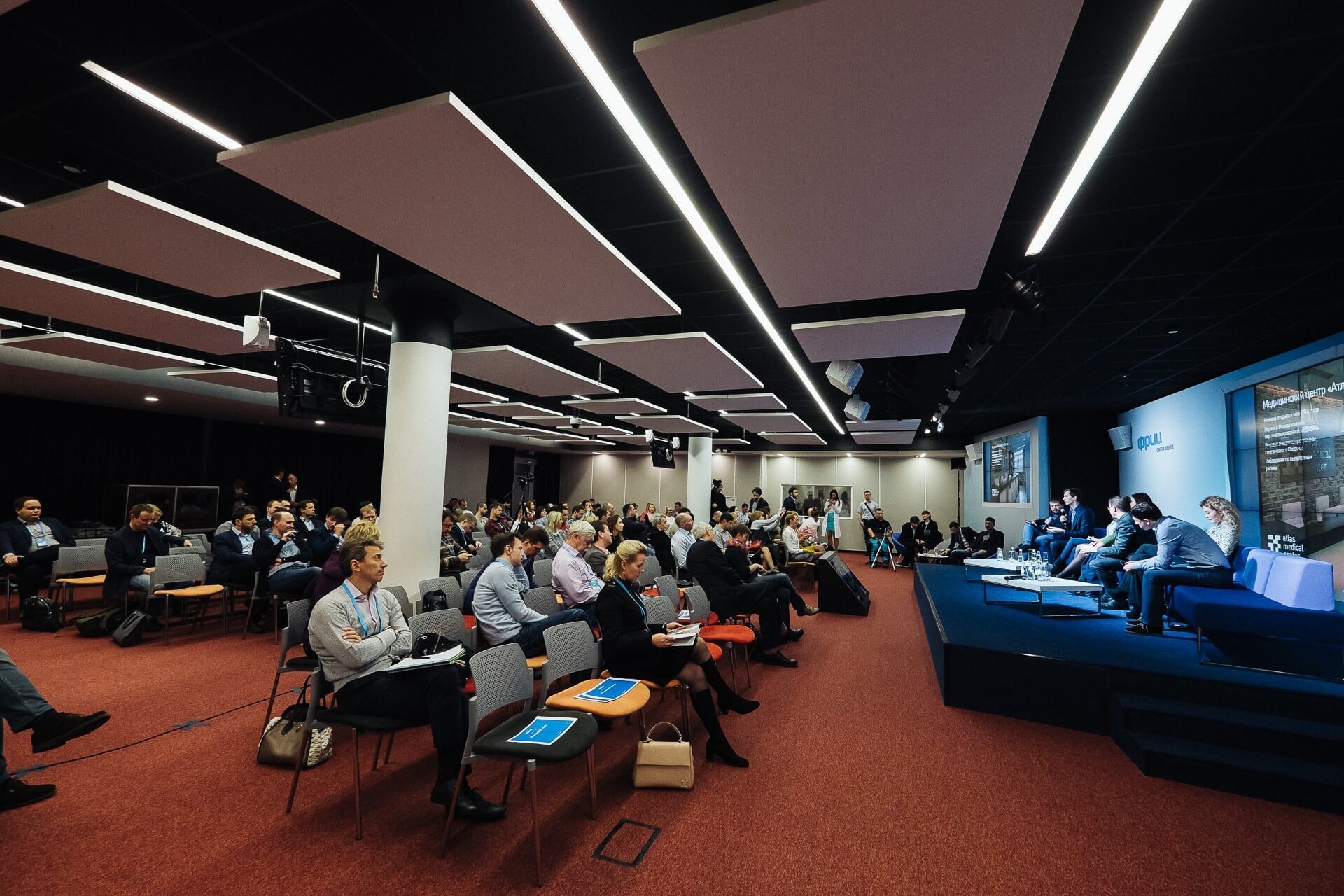Startups and investors: popular misconceptions about how venture business works

Despite the fact that the topic of startups is now very popular, many of the statements about the venture business can be attributed to the “myths”, based rather on some kind of “common understanding” of the industry. Formed by this "general idea" success stories, glossy magazines and feature films - the reality sometimes differs from them.
In this material, we will examine one of the most frequent allegations of startups and investors, which should be attributed to the category of controversial.
')
A startup is a small business for young people. So for each such “startup” there should be a venture investor
From the point of view of the business venture, this statement is at least ambiguous. Of course, the topic of startups is more popular among young people (and the word itself appeared relatively recently in Russian).
As the Director of the Startup Business Initiatives Support Center Roman Yankovsky emphasizes in his article , a venture investor as a startup (that is, a business in which high-risk investments are actually made) considers first of all a project based on unique intellectual property (innovation ).
Another (stemming from this position) characteristic of a startup is that it is extremely difficult to predict its success / failure in advance. That is why there is a need for venture (high-risk) investments, which any fashionable coffee shop or showroom will not need at all - such “start-ups” will be much easier and cheaper to take an ordinary bank loan if necessary.
All that an investor needs to make a decision on financing early in the life of a project is a business plan.
Indeed, in the early stages of a startup’s life, when the project has neither cash flow nor a user community, the business plan becomes the starting point for the investor to evaluate the potential investment. However, the whole procedure for making an investment decision involves many more steps and, in fact, is a complete verification of a startup before a transaction (so-called due diligence - it is carried out not only on the eve of the IPO).
In addition to a rough assessment of the project’s prospects and its future financial performance (all this can be found in the business plan), due diligence investors thoroughly study the managers and the project team (their qualifications and adequacy), as well as all legal issues (how intellectual property is protected, on what grounds is it used, etc.).
At the meeting “Investors and entrepreneurs: learning to negotiate”, participants were told that due diligence is a long and costly process, therefore, to save time and money, an investor and an entrepreneur can use a reassurance procedure about circumstances: the startup manager “assures” the investor that the project legally “clean”, and undertakes to pay a fine (or incur other types of punishment) in case of fraud.
The investor pays the money, the entrepreneur gives up shares or a stake in the company - this is the essence of all venture financing
In fact, this option for the investor is the most risky (and undesirable) - in case of failure, he is guaranteed to lose all the money. Therefore, in the early stages of a startup, investors are much more willing to provide money on terms close to bank lending - in the form of a loan secured by collateral (and this in itself is not so bad - banks are usually not ready to finance high-risk projects even under such conditions).
In this case, Roman Yankovsky calls a convertible loan a compromise - it can be exchanged for shares if the next investor joins the project. The conversion rate will depend on the evaluation of the project by a new investor with a certain discount. This option is extremely convenient for both the investor and the entrepreneur, but in the existing realities of the Russian legislation in its classical sense is impossible. Now you can use the available "analogues" of this agreement, but you should not despair - legislative work is being done in this direction (more on this below).
In addition, in order to secure their investments, the investor can divide them into tranches and issue each new batch of money depending on the KPI that the project reaches. This condition can be realized both with a loan and with an investment in capital. At the same time, if the conditions (specified by KPI) are not met, tranches may be delayed, reduced, or the investor’s share in the project will increase. The reverse (reduction of the investor’s share in KPI over-fulfillment), as a rule, does not occur.
Investors dream of taking 95%, or even 100% of shares / shares in the project - so they will own the business, and the founder will be left to live "for one salary"
This statement is also very controversial - usually the investor has several projects in the portfolio, each of which has its own characteristic features, so making operational decisions on each (or several) of them without plunging deeply into the specifics of businesses is extremely difficult. An experienced investor understands that it is best of all to bring business to success among those who are “ill” with them - therefore, it is concerned that these people should work together as comfortably as possible.
If necessary, an investor can attract mentors, share his own experience and expertise with the founders, or, as a last resort, involve professional managers in the project’s work - but in no way tries to “seize power” and establish total control over the business. As emphasized in another material from the series “Venture Process through the Eyes of a Lawyer”, investors prefer a share of 20-50% (which is a lot in itself), but are not interested in a super-controlling package of 60 percent or more.
The main achievement of any startup is to achieve self-sufficiency as soon as possible.
With this, too, you can bet. If we are talking about a startup that has a certain innovation and is able to form its own market around its product or service, the project will first of all seek to capture this new market as quickly as possible.
That is why in the life of a startup there is a period called cash burn - all the money that comes into the project is invested in its growth and development, and investors and founders may not receive operating profit for a long time - right up to an IPO. In the venture capital environment, this is understood , so the fact of self-sufficiency is not the only possible measure of project success.

An innovative project in the realities of Russian legislation cannot develop - you need to register a company in the West and work within the framework of international law
Of course, modern Russian legislation is not perfect. However, to assert that it is not suitable for work in the venture capital environment, it is not worth it - international law also has not only advantages, but also disadvantages, and the domestic legislative base, on the other hand, is gradually being improved.
For example, Iskender Nurbekov, Deputy Director of the Foundation for the Development of Internet Initiatives on Legal Issues and Initiatives, argues that it is much easier and cheaper for small and medium-sized businesses to remain within the Russian jurisdiction. First of all, because the registration of a transaction in the case of the use of international law, is expensive - 20-30% of the amount of the investment can go only to lawyers.
No less high costs arise in the case of legal proceedings - one has to apply to a foreign state court or international commercial arbitration (on average, as Iskender Nurbekov notes , this “pleasure” will cost 100 or more thousand euros).
Depending on the amount of the dispute, expenses may vary (this, however, does not exclude the cost of travel and lawyers), but they will clearly not be less (and most likely much more) the duty provided for by Russian legislation (33,000 rubles and 0.5% of the amount of the dispute, but not more than 200 thousand rubles) - in the current exchange rate, the difference becomes more and more dramatic.
Of course, Russian legislation, in contrast to international legislation, is only developing in the direction of working with a venture business. However, the major market players (and the IIDF including) in every possible way seek to change the current situation for the better - and this really works.
For example, in 2015, thanks to FRIA, the Civil Code was amended to facilitate venture investment. This is, first of all, about options, compensation for property losses, liability for providing false assurances about the circumstances in the form of compensation for damages and payment of penalties (the latter is the very ways to avoid costly due diligence legally and mutually beneficial).
Moreover, the Foundation has prepared a package of free standard documents for startups that will help to correctly form the relationship between an entrepreneur and an investor. The documents take into account recent changes in legislation and were discussed with representatives of large Russian IT companies and venture funds.
The initiative of the corporate contract (it is included in the package of model documents from the Fund) is discussed in more detail on the project’s page - the Foundation’s lawyers honestly and in detail describe which of the methods used in the West to work with venture capital investments are new to Russian practice and what risks can be associated with this to arise.
To improve the project, IIDF offers representatives of the venture industry and start-up community to take part in public examination of Foundation documents. You can familiarize yourself with each section of the corporate contract, read about the problems that the participants of the public examination revealed, suggest their solution, evaluate the proposals of other participants, or point out the previously unnoticed difficulties associated with a particular contract clause.
Of course, this list of "myths" about the venture business is not exhausted. We will continue to deal with the controversial, ambiguous, or lost touch with the real situation ideas about how the venture ecosystem works in our following materials.
 Announcement:
Announcement:On February 18, from 18:00 to 21:30, FRIA Open Doors Day (platform: FRIA City Hall in Moscow) will be held for those who want to learn more about IT entrepreneurs support from FRIA and partners.
For projects from the regions, an online broadcast will be organized. Program and registration here .
Source: https://habr.com/ru/post/298106/
All Articles